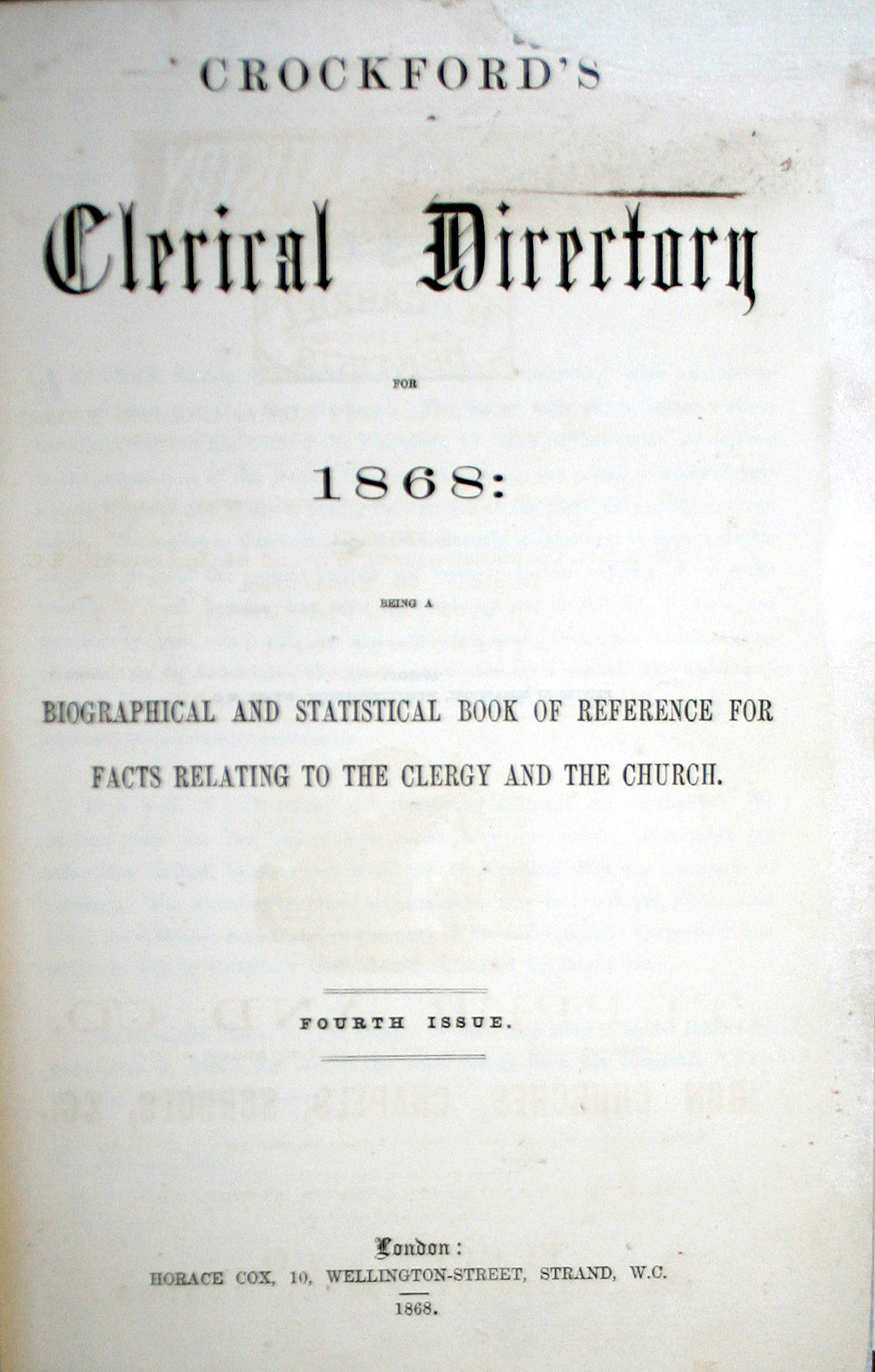|
David James Smith
David James Smith (14 July 1935 – 28 January 2024) was an English Anglican clergyman who was Bishop of Bradford from 1992 to 2002. Biography Born in Hertfordshire on 14 July 1935, he was educated at Hertford Grammar School (now Richard Hale School) and King's College London. He was ordained in 1959. His first post was as an assistant curate at All Saints' Gosforth, after which he became the assistant curate of St Francis High Heaton. Following this, he was Priest in Charge St Mary Magdalene, Longbenton and then Vicar of Longhirst with Hebron. He next became Vicar of St Mary's Monkseaton. He was subsequently the Rural Dean of Tynemouth and, in 1981, was collated Archdeacon of Lindisfarne. In 1987, he was ordained to the episcopate as Bishop of Maidstone and was translated in 1992 to be the Bishop of Bradford (until 2002). From 1990 to 1992, he was also Bishop to the Forces. Smith was a member of the House of Lords from 1997 to 2002. In retirement, he continued to serve as ... [...More Info...] [...Related Items...] OR: [Wikipedia] [Google] [Baidu] |
Bishop Of Bradford (diocese)
The Bishop of Bradford was, until 20 April 2014, the ordinary of the Diocese of Bradford, which covered the extreme west of Yorkshire and was centred in the city of Bradford where the bishop's seat (''cathedra'') is located in the Cathedral Church of Saint Peter. The bishop's residence was "Bishopscroft" in Bradford. The office existed since the foundation of the see from part of the Diocese of Ripon in 1920 under George V. The last diocesan Bishop of Bradford was Nick Baines, from 21 May 2011 until 20 April 2014. Baines was on sabbatical from February 2014 until the dissolution of the diocese on Easter Day 2014, during which time retired bishop Tom Butler was acting diocesan Bishop of Bradford.Diocese of Bradford – Former Bishop of Southwar ... [...More Info...] [...Related Items...] OR: [Wikipedia] [Google] [Baidu] |
Ordained
Ordination is the process by which individuals are Consecration in Christianity, consecrated, that is, set apart and elevated from the laity class to the clergy, who are thus then authorized (usually by the religious denomination, denominational hierarchy composed of other clergy) to perform various religious rites and ceremonies. The process and ceremonies of ordination vary by religion and denomination. One who is in preparation for, or who is undergoing the process of ordination is sometimes called an ordinand. The liturgy used at an ordination is commonly found in a book known as an Order of Mass, Ordinal which provides the ordo (ritual and rubrics) for celebrations. Christianity Catholic, Orthodox, Lutheran and Anglican churches In Catholicism and Orthodoxy, ordination is one of the seven sacraments, variously called holy orders or ''Christian laying on of hands, cheirotonia'' ("Laying on of Hands"). Apostolic succession is considered an essential and necessary concept ... [...More Info...] [...Related Items...] OR: [Wikipedia] [Google] [Baidu] |
Assistant Bishop
An assistant bishop in the Anglican Communion is a bishop appointed to assist a diocesan bishop. Church of England In the established Church of England, assistant bishops are usually retired (diocesan or suffragan bishop, suffragan) bishops – in which case they are ''honorary assistant bishop''s. Historically, non-retired bishops have been appointed to be assistant bishops – however, unlike a diocesan or suffragan they do not hold a see: they are not the "Bishop of Somewhere". Some honorary assistant bishops are bishops who have resigned their see and returned to a priestly ministry (vicar, rector, canon, archdeacon, dean etc.) in an English diocese. A recent example of this is Jonathan Frost, Dean of York, who was also an honorary assistant bishop of the Diocese of York, with membership of the diocesan House of Bishops (i.e. sits and votes with the archbishop and bishops suffragan in Diocesan Synod). Ex-colonials From the mid-19th to the mid-to-late 20th centuries, with the po ... [...More Info...] [...Related Items...] OR: [Wikipedia] [Google] [Baidu] |
House Of Lords
The House of Lords is the upper house of the Parliament of the United Kingdom. Like the lower house, the House of Commons of the United Kingdom, House of Commons, it meets in the Palace of Westminster in London, England. One of the oldest extant institutions in the world, its origins lie in the early 11th century and the emergence of bicameralism in the 13th century. In contrast to the House of Commons, membership of the Lords is not generally acquired by Elections in the United Kingdom, election. Most members are Life peer, appointed for life, on either a political or non-political basis. House of Lords Act 1999, Hereditary membership was limited in 1999 to 92 List of excepted hereditary peers, excepted hereditary peers: 90 elected through By-elections to the House of Lords, internal by-elections, plus the Earl Marshal and Lord Great Chamberlain as members Ex officio member, ''ex officio''. No members directly inherit their seats any longer. The House of Lords also includes ... [...More Info...] [...Related Items...] OR: [Wikipedia] [Google] [Baidu] |
Debrett's
Debrett's () is a British professional coaching company and publisher and authority on etiquette and behaviour, founded in 1769 with the publication of the first edition of ''The New Peerage''. The company takes its name from its founder, John Debrett. John Debrett John Debrett (8 January 1753 – 15 November 1822) was the London-born son of Jean Louys de Bret, a French cook of Huguenot extraction and his wife Rachel Panchaud. As a boy of thirteen, John Debrett was apprenticed to a Piccadilly bookseller and publisher, Robert Davis. He remained there until 1780, when he moved across Piccadilly to work for John Almon, bookseller and stationer. John Almon edited and published his first edition of ''The New Peerage'' in 1769, and went on to produce at least three further editions. By 1790 he had passed the editorship on to John Debrett who, in 1802, put his name to the two small volumes that made up ''The Correct Peerage of England, Scotland and Ireland''. Despite twice being decl ... [...More Info...] [...Related Items...] OR: [Wikipedia] [Google] [Baidu] |
Translation (ecclesiastical)
Translation is the transfer of a bishop from one episcopal see to another. The word is from the Latin ', meaning "carry across" (another religious meaning of the term is the translation of relics). This can be: *From one diocesan bishopric to another bishopric which is perceived as more important (or the bishop prefers as his or her see) *From suffragan bishop status to diocesan bishop *From coadjutor bishop to diocesan bishop *From one country's episcopate to another *From diocesan bishop to archbishop In Christian denominations, an archbishop is a bishop of higher rank or office. In most cases, such as the Catholic Church, there are many archbishops who either have jurisdiction over an ecclesiastical province in addition to their own archdi ... References Anglicanism Episcopacy in the Catholic Church Christian terminology {{christianity-stub ... [...More Info...] [...Related Items...] OR: [Wikipedia] [Google] [Baidu] |
Episcopate
A bishop is an ordained member of the clergy who is entrusted with a position of authority and oversight in a religious institution. In Christianity, bishops are normally responsible for the governance and administration of dioceses. The role or office of the bishop is called episcopacy or the episcopate. Organisationally, several Christian denominations utilise ecclesiastical structures that call for the position of bishops, while other denominations have dispensed with this office, seeing it as a symbol of power. Bishops have also exercised political authority within their dioceses. Traditionally, bishops claim apostolic succession, a direct historical lineage dating back to the original Twelve Apostles or Saint Paul. The bishops are by doctrine understood as those who possess the full priesthood given by Jesus Christ, and therefore may ordain other clergy, including other bishops. A person ordained as a deacon, priest (i.e. presbyter), and then bishop is understood to hold ... [...More Info...] [...Related Items...] OR: [Wikipedia] [Google] [Baidu] |
Tynemouth
Tynemouth () is a coastal town in the metropolitan borough of North Tyneside, in Tyne and Wear, England. It is located on the north side of the mouth of the River Tyne, England, River Tyne, hence its name. It is east-northeast of Newcastle upon Tyne. The medieval Tynemouth Priory and Castle stand on a headland overlooking both the mouth of the river and the North Sea, with the town centre lying immediately west of the headland. Historically part of Northumberland until 1974, the town was a county borough which included the nearby town of North Shields. At the 2021 census the Tynemouth built-up area as defined by the Office for National Statistics (which also includes North Shields) had a population of 60,605. The population of Tynemouth itself at the 2021–2022 United Kingdom censuses, 2021 census was 10,256. History The headland towering over the mouth of the River Tyne has been settled since the Iron Age. The Romans may have occupied it as a signal station, though it i ... [...More Info...] [...Related Items...] OR: [Wikipedia] [Google] [Baidu] |
Rural Dean
In the Roman Catholic Church and the Anglican Communion as well as some Lutheran denominations, a rural dean is a member of clergy who presides over a "rural deanery" (often referred to as a deanery); "ruridecanal" is the corresponding adjective. The adjective ''rural'' does not mean the role is restricted to the countryside, but distinguishes them from the deans of cathedral chapters, which were historically in cities. In some Church of England dioceses rural deans have been formally renamed as area deans. Origins The title "dean" (Latin ''decanus'') may derive from the custom of dividing a hundred into ten tithings, not least as rural deaneries originally corresponded with wapentakes, hundreds, commotes or cantrefi in Wales. Many rural deaneries retain these ancient names.Cross, F. L., ed. (1957) ''The Oxford Dictionary of the Christian Church''. London: Oxford University Press; p. 1188. The first mention of rural deans comes from a law made by Edward the Confessor, whic ... [...More Info...] [...Related Items...] OR: [Wikipedia] [Google] [Baidu] |
Crockford's Clerical Directory
''Crockford's Clerical Directory'' (''Crockford'') is the authoritative directory of Anglican clergy and churches in Great Britain and Ireland, containing details of English, Welsh, Scottish and Irish benefices and churches, and biographies of around 26,000 clergy in those countries as well as the Church of England Diocese in Europe in other countries. It was first issued in 1858 by John Crockford, a London printer and publisher. ''Crockford'' is currently compiled and published for the Archbishops' Council by Church House Publishing. It covers in detail the whole of the Church of England (including the Diocese in Europe), the Church in Wales, the Scottish Episcopal Church, and the Church of Ireland, and it also gives some information – now more limited – about the world-wide Anglican Communion. Previous publishers The title of the first edition was simply ''The Clerical Directory'', but a footnote showed that it was published by John Crockford, 29 Essex Street, Strand, L ... [...More Info...] [...Related Items...] OR: [Wikipedia] [Google] [Baidu] |
Vicar
A vicar (; Latin: '' vicarius'') is a representative, deputy or substitute; anyone acting "in the person of" or agent for a superior (compare "vicarious" in the sense of "at second hand"). Linguistically, ''vicar'' is cognate with the English prefix "vice", similarly meaning "deputy". It also refers to a senior priest in the Church of England. The title appears in a number of Christian ecclesiastical contexts, but also as an administrative title, or title modifier, in the Roman Empire. In addition, in the Holy Roman Empire, a local representative of the emperor, such as an archduke, could be styled " vicar". Catholic Church The Pope bears the title vicar of Christ (Latin: ''Vicarius Christi''). In Catholic canon law, ''a vicar is the representative of any ecclesiastic'' entity. The Romans had used the term to describe officials subordinate to the praetorian prefects. In the early Christian churches, bishops likewise had their vicars, such as the archdeacons and archpriests, ... [...More Info...] [...Related Items...] OR: [Wikipedia] [Google] [Baidu] |






